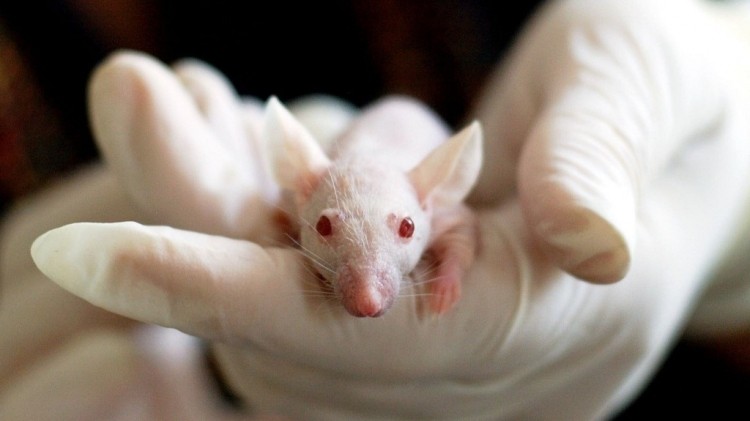Skin-on-a-Chip: Singaporean scientists develop device which can replace animal testing

The credit-card sized device was created by a multidisciplinary team, led by Wang Ziping from the A*STAR SIMTech and Paul Bigliardi from the A*STAR Institute of Medical Biology (IMB).
Reconstructing skin
The device, dubbed the skin-on-a-chip, works based on microfluidics, can process small quantities of fluids at a microscale.
This makes the device even more capable of mimicking the structure functionalities and microenvironment of human skin compared to static skin cultures.
According to the researchers, this allows the testing of skin care products for absorption, safety, and permeability.
“The skin reconstructed in the microfluidic system exhibited enhanced maturation of the epidermis, and almost twice the epidermal thickness of standard skin equivalents,” said Zee Upton, Covering Executive Director of A*STAR’s IMB. “This more closely mimics the full thickness of human skin, and therefore has a higher degree of accuracy in testing chemical permeability,”
One issue with conventional collagen-based skin equivalents, is that they are known to have shrink and affect the results. “When collagen contracts, we don't know whether compounds under investigation are going through the skin or through gaps between the device and the skin during permeation tests,” explains Gopu Sriram, one of the lead authors.
To address this issue of skin contraction, the skin is grown directly in the microfluidic device where the tests are conducted.
“To demonstrate the superior nature of the skin cultured in our platform. We performed an array of correlative tests, ranging from conventional immunostaining and chemical permeability experiments to cutting-edge bio-imaging and spectroscopy,” said Upton.
The studies showed that “skin” cultured in the microfluidic device exhibited grew nearly two-fold, increasing the thickness of the “epidermis”.
“This enhanced epidermis correlated with lower chemical permeability than in conventional systems,” said Yuri Dancik, another lead author.
“This skin-on-chip platform offers better skin structure and performance in terms of barrier function, compared to conventional skin reconstruction techniques,” added Wang. “Our solution can also facilitate downstream assays using commercially available skin equivalents or natural skin.”
Additionally, as the device is made of hard plastic and can be affordably mass produced, this solution can be scaled up to an industrial scale.
Improving further
For their efforts in developing this innovation, the team was awarded the Global 3Rs Award in October by the Innovation & Quality (IQ) Consortium and the Association for Assessment and Accreditation of Laboratory Animal Care International (AAALAC).
The award, presented during the 69th National Meeting of the American Association for Laboratory Animal Science (AALAS), recognises innovative contributions toward “Refinement, Replacement or Reduction” of animal use in scientific research.
However, the team is not resting on its laurels. According to the scientists, the team is currently working on improving the model to better mimic natural human.
To do so, they plan to increase the complexity of their model by adding immune cells and enhancing its barrier function.
In addition, they hope to optimise the microfluidic device by simulating blood flow dynamics and implementing additional microenvironment controls so the device can be brought closer to the likeness to human skin.









![Indus Valley is working to corner 30% of India's online premium boxed hair colour market. [Indus Valley]](/var/wrbm_gb_food_pharma/storage/images/_aliases/wrbm_tiny/publications/cosmetics/cosmeticsdesign-asia.com/article/2024/07/26/indus-valley-aims-to-secure-30-of-india-s-online-premium-hair-colour-market-with-organic-offerings/17594932-5-eng-GB/Indus-Valley-aims-to-secure-30-of-India-s-online-premium-hair-colour-market-with-organic-offerings.jpg)
![[Getty Images]](/var/wrbm_gb_food_pharma/storage/images/_aliases/wrbm_tiny/publications/cosmetics/cosmeticsdesign-asia.com/china/china-focus-latest-developments-in-china-s-booming-beauty-market25/17606695-1-eng-GB/China-focus-Latest-developments-in-China-s-booming-beauty-market.jpg)
![Kosé has launched makeup brand Visée in Singapore as part of plans to reinforce its position in SEA. [Visée]](/var/wrbm_gb_food_pharma/storage/images/_aliases/wrbm_tiny/publications/cosmetics/cosmeticsdesign-asia.com/headlines/business-financial/visee-singapore-kose-aims-to-enhance-brand-visibility-in-sea-with-new-launch/17587264-1-eng-GB/Visee-Singapore-Kose-aims-to-enhance-brand-visibility-in-SEA-with-new-launch.jpg)
![ble C&C is set on reinforcing its competitiveness in China’s beauty market. [Missha]](/var/wrbm_gb_food_pharma/storage/images/_aliases/wrbm_tiny/publications/cosmetics/cosmeticsdesign-asia.com/headlines/business-financial/able-c-c-aims-to-strengthen-competitiveness-in-china-through-online-expansion-kol-collabs/17591626-1-eng-GB/Able-C-C-aims-to-strengthen-competitiveness-in-China-through-online-expansion-KOL-collabs.jpg)

![LG H&H genetic study says 23 genetic regions affect natural skin tone. [Getty Images]](/var/wrbm_gb_food_pharma/storage/images/_aliases/wrbm_tiny/publications/cosmetics/cosmeticsdesign-asia.com/article/2024/07/23/lg-h-h-discovery-of-genetic-skin-tone-factors-in-east-asians-potentially-key-to-skin-radiance-developments/17587210-1-eng-GB/LG-H-H-discovery-of-genetic-skin-tone-factors-in-East-Asians-potentially-key-to-skin-radiance-developments.jpg)

![DR.CI:LABO expects brand-supplier partnerships gain more public prominence as consumers interest in skin care grows online. [Dr.Ci:Labo]](/var/wrbm_gb_food_pharma/storage/images/_aliases/wrbm_tiny/publications/cosmetics/cosmeticsdesign-asia.com/article/2024/07/22/brand-supplier-partnerships-will-come-to-the-fore-amid-the-online-skin-care-landscape-dr.ci-labo/17576755-1-eng-GB/Brand-supplier-partnerships-will-come-to-the-fore-amid-the-online-skin-care-landscape-DR.CI-LABO.png)


